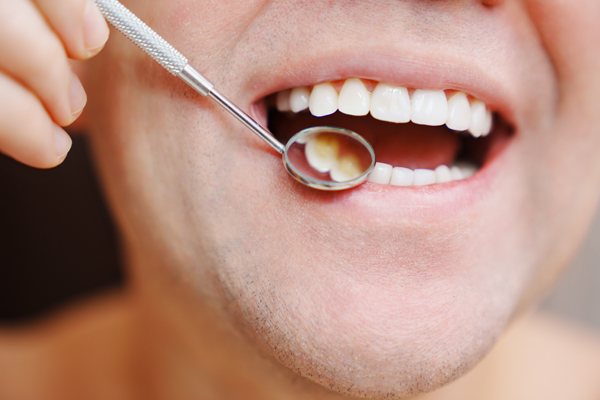My New Dental Crown: Zirconia vs. Gold

When getting a new dental crown, zirconia versus gold is the great debate. Both are known for their durability, but there are plenty of differences.
What is a zirconia dental crown?
Gold is self-explanatory, but what is zirconia? Zirconia is the newest type of dental crown available. Zirconia is a metal oxide and type of dental ceramic. Unlike the dental ceramics that have been in use for decades, zirconia blends in more naturally with real teeth and is nearly indestructible.
Benefits of zirconia crowns
The main benefit of zirconia crowns is their strength and longevity. Most crowns can last a good 10 to 15 years, and a zirconia crown may even last a lifetime. Zirconia crowns are incredibly durable. Other crown materials may run the risk of cracking or fracturing after years of use, especially if they commonly encounter hard foods.
Zirconia crowns can more perfectly mimic the look of a natural tooth than any other material. A zirconia base provides an incredibly strong core for a crown. Then, appropriate levels of glazing and staining can bring the zirconia to the glossy shade of a healthy, natural tooth.
Zirconia crowns are also incredibly safe. They present with a level of biocompatibility higher than most other dental materials. Allergies to gold or the materials used for traditional porcelain-fused-to-metal crowns are not uncommon. Zirconia has a distinct advantage for safety and biocompatibility. In fact, zirconia is so safe that it is also used for implants elsewhere in the body, such as the ear or hip.
The strength of zirconia can occasionally prove to be a downside. If it is not fitted perfectly or if the patient grinds their teeth, the indestructible zirconia material can damage surrounding teeth.
Benefits of gold crowns
Gold is one of the oldest materials used in dentistry. For centuries, gold and gold alloys have been used to repair damaged teeth. Gold is not easily worn down, making it ideal for the constant wear-and-tear that teeth go through. Gold and gold alloy crowns may appear gold or silver in color and they typically last a very long time.
Gold is also one of the less destructive crowns. When applying a gold crown, a minimal amount of the underlying tooth needs to be removed to properly fit the crown.
The main downside of gold crowns is their aesthetic. Gold crowns cannot pass for natural teeth the same way that porcelain crowns can.
Caring for a dental crown
Although gold and zirconia crowns are strong and durable, the tooth they cover may not be. It is important to continue observing good oral hygiene after getting a new crown. If the tooth beneath the crown succumbs to dental decay, the crown will have to be removed and refitted.
Continue to floss and gently brush the tooth daily. Use a soft-bristled toothbrush and brush in a light, circular motion. Using a fluoride rinse or calcium phosphate paste can help strengthen the remaining tooth beneath the crown, preventing decay.
Request an appointment here: https://www.schommerdental.com or call Schommer Dental at (563) 272-2331 for an appointment in our Davenport office.
Check out what others are saying about our services on Yelp: Read our Yelp reviews.
Recent Posts
Dental crowns, or tooth caps, are a common dental restoration for fixing broken, cracked, or decaying teeth. The goal of this dental restoration is to improve the size, shape, strength, and aesthetics of the tooth. Your teeth and the severity of the issue will determine whether the dentist suggests a dental crown for you. In…
If your oral health challenges call for a full mouth reconstruction, you probably have a lot of questions. There are many reasons why you may feel worried about the upcoming treatments. Many of these treatments are invasive and involved. Fortunately, you can have peace of mind that the dentist has the knowledge and training to…
Dental bonding and dental crowns are two common types of restorative dental procedures. Many general dentists offer both treatment options, and there are pros and cons to each procedure. Understanding when a general dentist may recommend dental bonding or a crown can help you decide which option is more appropriate for you. The best way to…
Partial dentures are a great tooth replacement option for missing teeth. They are easier on the mouth than full dentures but not as costly as dental implants. Those that wear partial dentures can expect an easier eating experience, better speaking and an aesthetically pleasing smile. However, with partial dentures comes discipline, meaning the wearer must…


